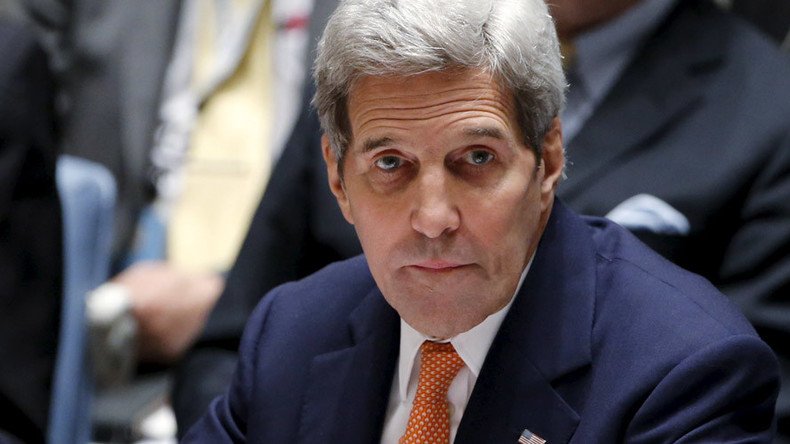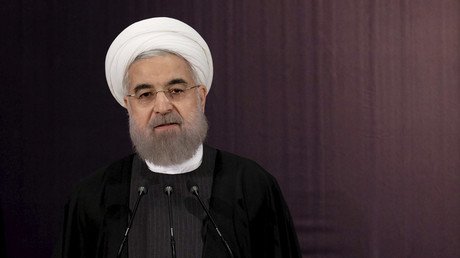US Secretary of State John Kerry pointed to “significant results” towards implementing the Iran nuclear deal. At the same time, however, GOP lawmakers are moving towards a showdown with the White House over the international agreement.
After speaking with Iranian Foreign Minister Mohammad Javad Zarif on Thursday morning, Kerry praised the steps that Iran has taken towards implementing the Joint Comprehensive Plan of Action, agreed to in July.
“The foreign minister made it clear to me they intend to complete their obligations with respect to implementation day as rapidly as possible, and we are currently engaged ourselves in making certain that we’re prepared to move on that day,” the secretary told reporters at the State Department Thursday afternoon. “And I think that it could come ‒ without being specific ‒ sooner rather than later.”
At the end of December, Iran shipped 11 tons of low-enriched uranium to Russia, which Kerry deemed a “significant result” towards the country fulfilling its obligations under the deal. Russia will transform the stockpiled nuclear material at its facilities, so that it cannot be used to manufacture a bomb.
“With that, Iran literally shipped out its capacity currently to build a nuclear weapon. We went from two months of potential breakout time to three months to nine months overnight,” Kerry said. “And, in the next days, with the completion of their tasks, we will meet our target of being more than a year of breakout time.”
Kerry promised that the US would continue to ensure that Iran lives up to its other obligations outlined in the deal, but would also “address the questions of Iran’s activities, whether it’s missile activities or other activities in the region,” including “the return of Americans who have been unjustly detained” by the government in Tehran.
The secretary’s statement comes as the Republican-led House Foreign Affairs Committee approved a bill that could undermine the Iran deal. The ‘Iran Terror Finance Transparency Act’ would increase lawmakers’ oversight of the agreement by requiring the Obama administration to uphold its commitment not to ease pressure on Iran's support for terrorism or its ballistic missile program, Reuters reported.
Critics of the bill, including some Democrats who initially voted to kill the Iran deal in September, say that Republicans are trying to scuttle the agreement by violating its terms.
"I believe it doesn't serve any purpose to have bills like this that are designed to kill the deal," Representative Eliot Engel (D-New York), the ranking member on the Foreign Affairs Committee, told Reuters. "I don't want to vote 62 or 63 times on killing the Iran agreement," referring to the number of times that the House has voted to repeal the president’s signature health care reform law.
Engel voted with the majority of the House of Representatives in September to pass a resolution of disapproval against the Iran deal. The Senate also passed the resolution, which President Barack Obama then vetoed. With more than 33 senators supporting the agreement, however, lawmakers could not override the president’s decision.
Despite the concrete steps that Iran has already taken towards implementation of the deal, the Obama administration is expected to eventually impose new sanctions on Iran over its missile program, congressional aides told Reuters.


